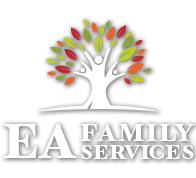What Not to Say to Foster Parents
Many people will, at some point in their lives, know someone who is involved in foster parenting in one way or another. And as any foster parent can tell you, when the topic arises with friends and family, the same (oftentimes cringe-inducing) questions are asked again and again.
With this in mind, we've put together a list of things you should never say to a prospective or current foster parent, and a few suggested alternatives.
"My friend became a foster parent and [insert terrible story here]."
The process of becoming a licensed foster parent is thorough and rigorous for a reason. The steps involved require introspection and deep consideration, so please trust it's not a decision that was made on a whim.
Instead of sharing a bad experience you once heard about (or an article you read with similar conclusions), ask what sparked the interest in becoming a foster parent.
"Aren't you scared it's going to be painful to give them back?"
This is along the same lines as launching into a nightmare labor story after someone shares a pregnancy announcement. (You definitely shouldn't do that either). When a child enters foster care, the goal is to provide a safe, stable environment until their permanent plan is achieved, such as reunification, adoption, or guardianship.
Yes, it can be difficult, but the job of the foster parent is to make them feel safe and loved for as long as they're under their care. As pretty much any foster parent will tell you, the good feelings outweigh the bad. Instead of asking about the potential future pain, consider instead letting them know that in the event of difficult times, you'll be there for them.
"Don't you want to have your own kids?"
There are many different ways to make a family. Don't assume that everyone is interested in, or capable of, being what's thought of as a "traditional" parent. The underlying message of the question above is that foster parenting is "lesser-than" somehow. Instead, consider asking what parts of parenting they're really excited about.
As writer Dane Bauer Hassid put it:
"Kids come into my house whole, not broken. They come with trauma and baggage and very few belongings. But they also come with wholly formed personalities, senses of humor, survival skills, smarts, and playfulness. There is nothing to fix, only to heal and continue to grow and thrive."
Interested in learning more about foster parenting? Learn more in our Foster Family section!
